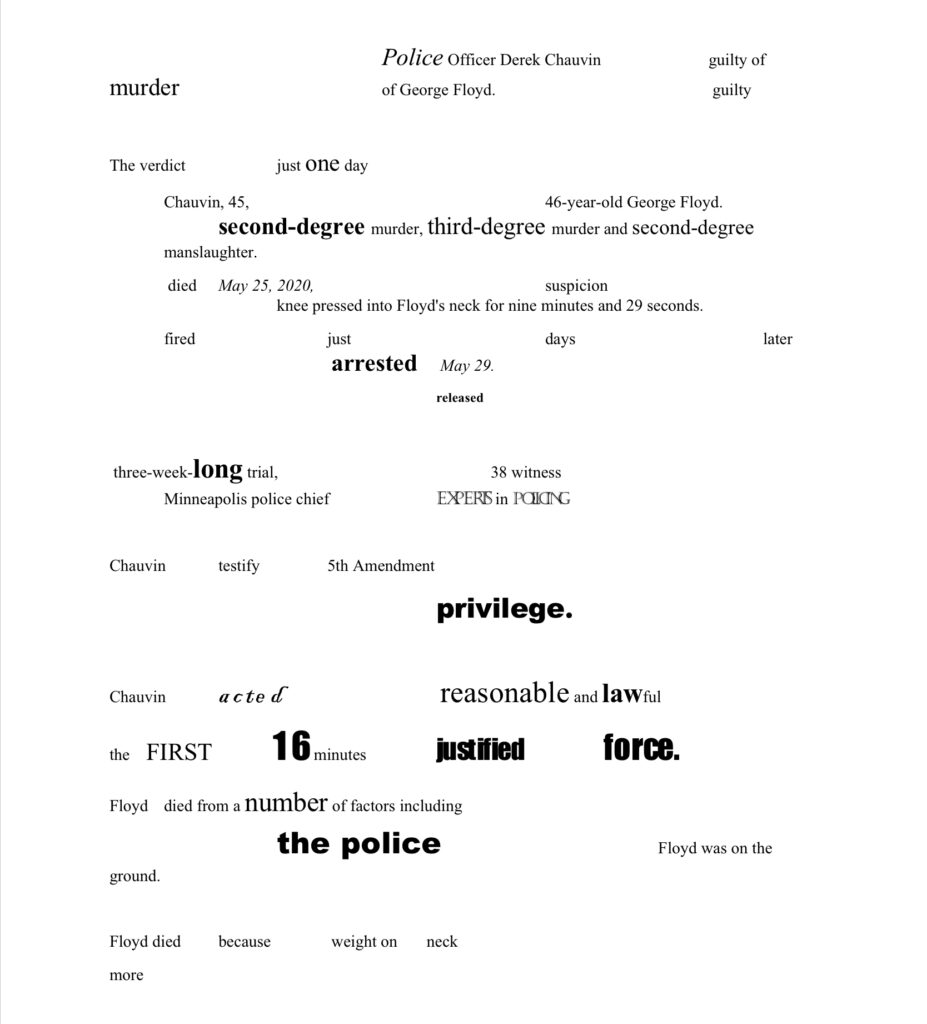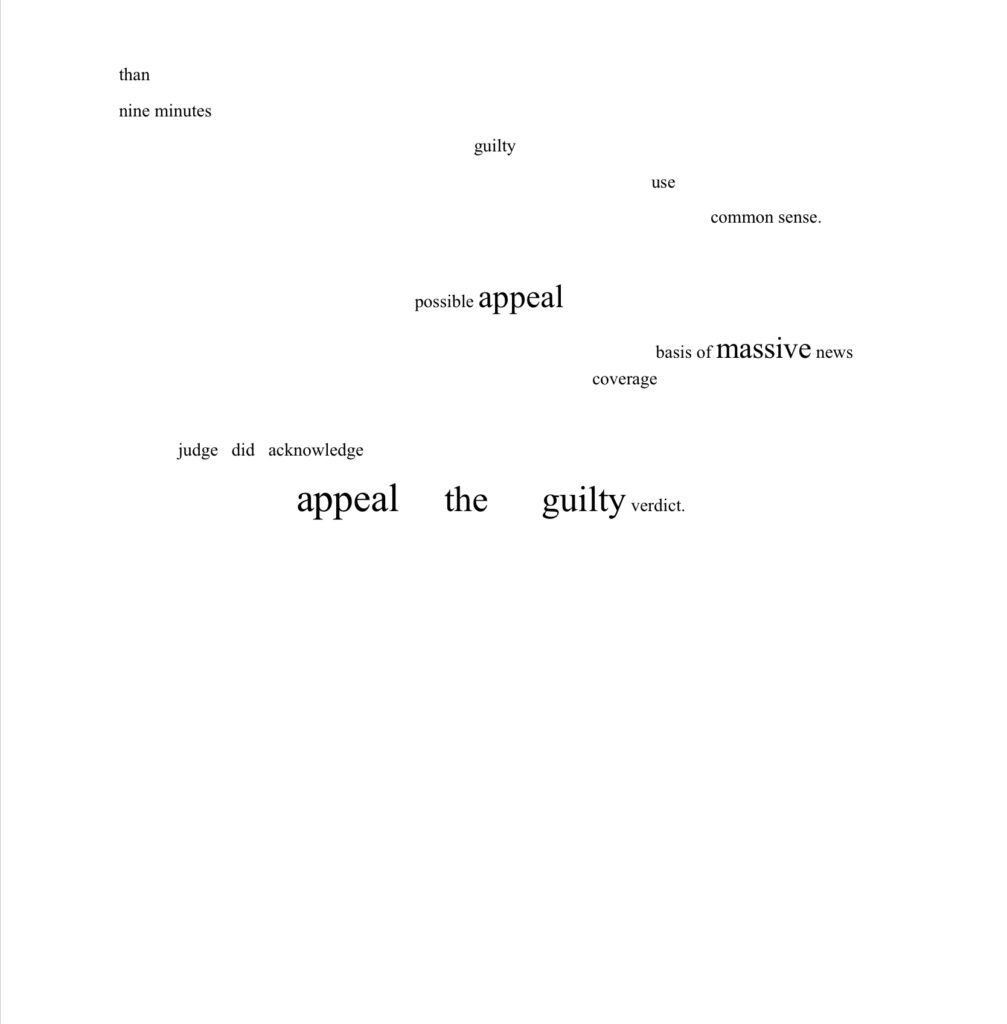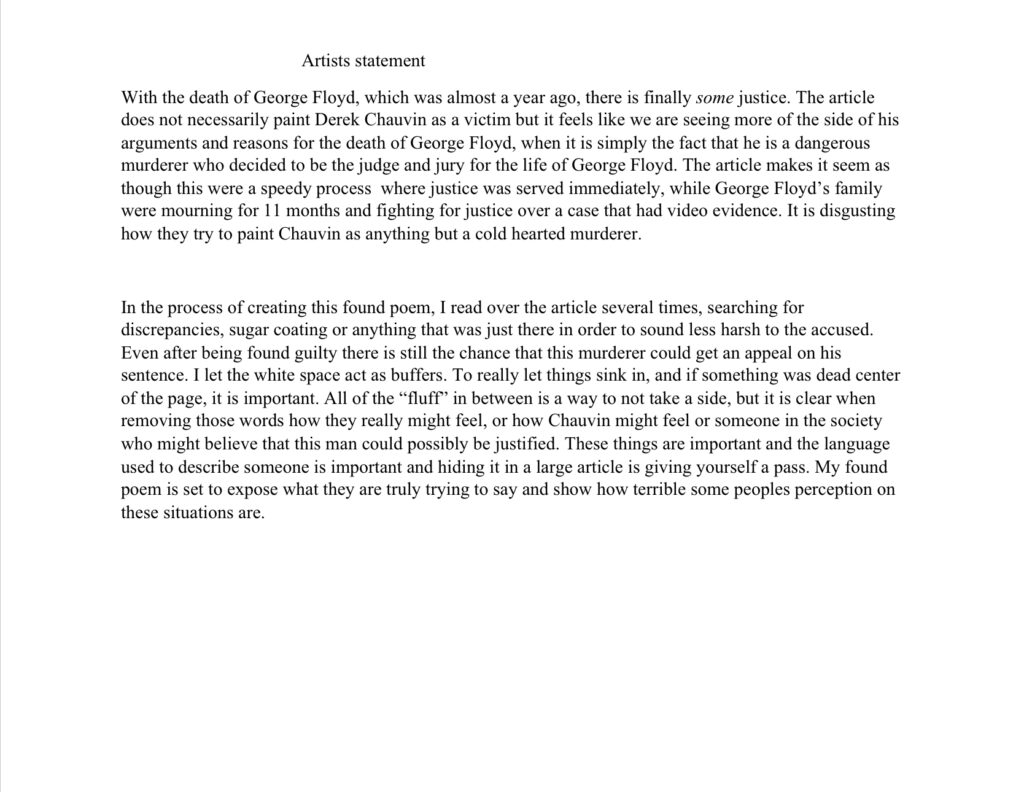From the beginning of Myriam Gurba’s Mean, Gurba has constantly stated this overwhelming feeling of guilt when she feels the presence of Sophia Loren’s ghost, a girl who was raped and killed by a man. Up until this point, we had been unaware as to what her relationship to Sophia is and why she harbors such strong feelings of guilt. We finally learn more about what the two had in common, the same perpetrator. Gurba relives her experience and describes the horrifying scene where the only thing she could think of was how embarrassing the situation was. She was not only humiliated on her own but then when searching for help she is shamed by others around her.
It is upsetting that someone who went through a traumatic event is not initially thinking about her own well-being and is instead concerned about what other people are thinking about, especially the man who did these horrid things to her. “The only other detail I’ll give is one that seared me with humiliation. “Oh my god,” I thought horrified. “I’m wearing my period underwear.”” (Gurba, 119) This line makes it seem as though it is her fault, that she should have been more “presentable” for this man who is assaulting her. It also shows that in this society, it is a lose-lose-situation, because if she had been wearing something more “suitable” she would have been called a slut and a whore and people would tell her if she wasn’t wearing something like that it probably wouldn’t have happened. It is a disgusting narrative that we unfortunately see very often where many people look to the victim of assault and try to see where they “went wrong”. There is simply nothing a victim could do than what they did. If their survival instincts told them to freeze, run, fight none of that is their fault. Instead of looking at what the victim should have done perhaps we can for once look at what the predator did and go off of that. There should never be the question as to what the victim was wearing, what they did or didn’t do. It is frustrating that these thoughts have been so ingrained into everyone’s minds that while a victim is actively being assaulted she can only think about the embarrassment that she is facing because she isn’t wearing the sexiest underwear in the world.
Later, we feel more of the shame Gurba feels when she is grabbed and has to make the “walk-of-shame” past people who know that something extremely vulnerable and personal just happened to her. “The school secretaries turned as we entered. They looked at me. They had the same looks on their faces the principal had upon first seeing me. It was one I’d never seen before but recognized immediately. It was the oh-god-she’s-been-raped look.” (Gurba, 121) This line can read so many ways to me. While it could be a look of sympathy, the way I believe it to be is almost like a here-we-go-again type of tone to it. As if Gurba’s assault was an inconvenience to them. Not only would she feel shame in this moment for what happened but now she has to be concerned over what people think about her and her situation. This gives us an accurate understanding over what it is like for victims of assault, even if no one is directly saying to them it is their fault or they should be ashamed, we see that people just are involved and will have thoughts on something that does not have anything to do with them. Even if the way they were looking at her came from a place of sympathy, no one wants to look like someone others would want to pity, they do not want to be seen as a vulnerable victim, especially someone as “mean” as Gurba. Society views these people as weak, in all senses, mental and physical. These are not fair assumptions though because anyone who is a victim of any attack needs to cope and overcome in their own ways and how they handled the situation before and after is not and should not be a tell on their strength as a person.
Finally, the last instance of shame we see through this section is when Gurba is yelled at by the nurse after her traumatic experience. “”STOP CRYING!” yelled the nurse. Her command shocked me silent. “You’re going to have to get over this,” she said. “These kinds of things happen. You’re going to have to get over this. Do you hear me?” Her forehead tensed. Her skin grew stern.” (Gurba, 122) To be told in a place where you believe you are going to get help to get over something that just happened could be extremely shattering to a person. These things take time to heal and snapping at someone who is clearly still frazzled by the situation is not the way to go about it at all. This is something we see everyday, sometimes not to the same extent of it being right after it happened but victims are told to just “get over” something extremely traumatic. Gurba and many other victims experience PTSD, it is not something they can just control and anything in everyday life could trigger someone. Some if not most people never truly recover from these situations, and being told by others to speed up their recovery process could be really disheartening, as it could feel as though they are being a burden to other people because of the situation they went through. This brings more shame from a situation where there should not have been any to begin with. We could try to understand where these people are coming from, it is true that it is something that they can not change or do anything about so what is the use of being upset over it? PTSD is ultimately a defense mechanism, when a person goes through something so traumatic the body and mind will react in a certain way in order to almost keep them cautious and if something triggers them, there is a reason for this. It is almost as though your instincts are raised incredibly and you are hyper aware of things around you. So while it would be nice to just “get over” something like this, these experiences could change someone’s life indefinitely.
- Why might Gurba or any other victims of assault feel shame when they are ultimately not at fault for what happened?
- Why was everyone so insensitive to the situation and is the nurse right in what she says, should Gurba just “get over this”?
Gurba, Myriam. Mean. Coffee House Press, 2017.



